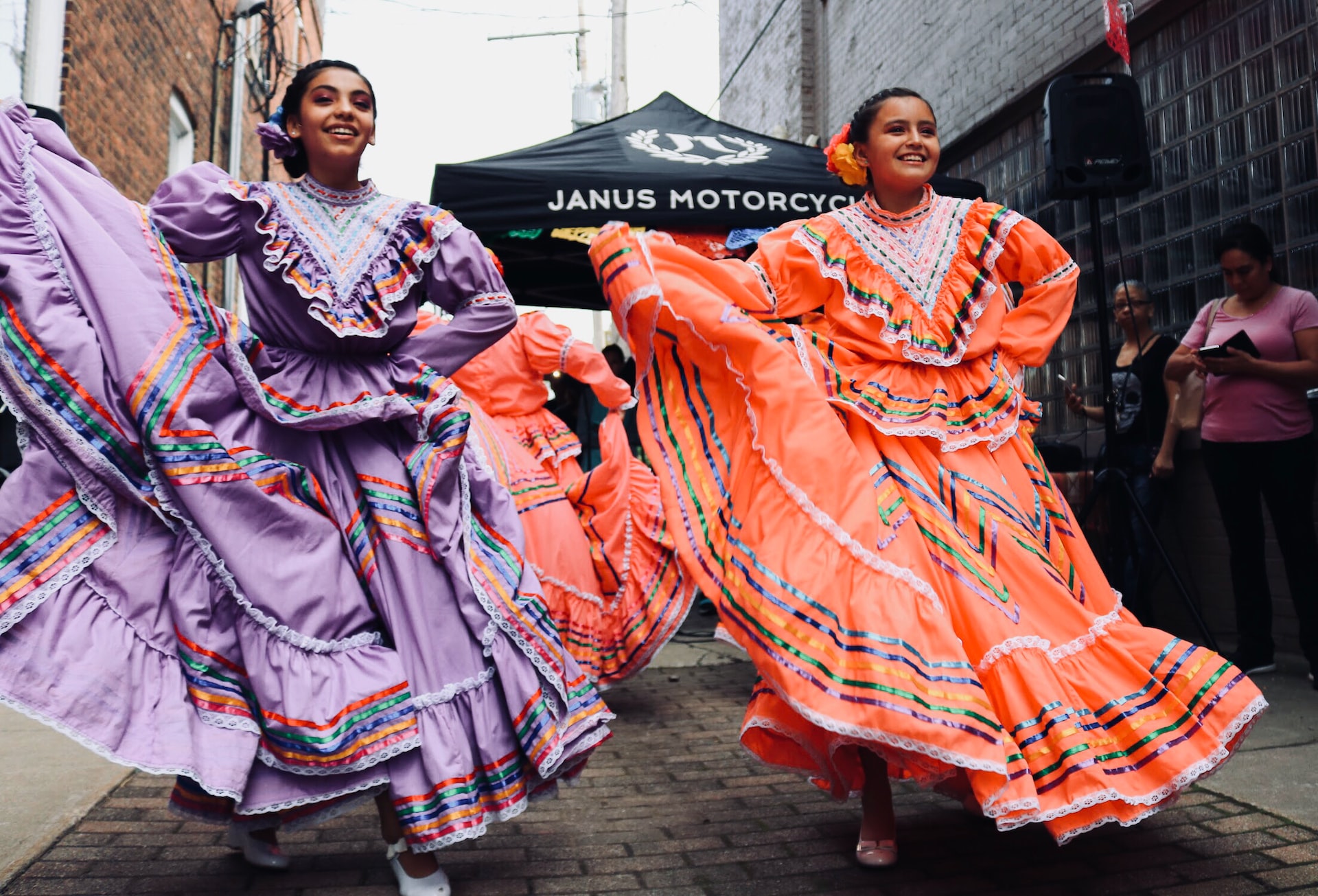By Ashley Barnes
About Hispanic Heritage Month.
Hispanic Heritage Month is celebrated in the United States on September 15th – October 15th, beginning “in the middle rather than the start of September because it coincides with national independence days in several Latin American countries: Guatemala, Honduras, El Salvador, Nicaragua and Costa Rica celebrate theirs on Sept. 15, followed by Mexico on Sept. 16, Chile on Sept. 18 and Belize on Sept. 21” (Pew Research Center, 2021).
The celebratory month recognizes the incredible ways that Hispanic individuals and communities have contributed and influenced the culture, history, and achievements of the United States.
It is important that readers understand the vast umbrella term that the word “Hispanic” is, as within the Hispanic community are many subcommunities with distinct identities and experiences. The U.S. Office of Management and Budget (OMB) defines “Hispanic or Latino” as a person of “Cuban, Mexican, Puerto Rican, South or Central American, or other Spanish culture or origin regardless of race” (U.S. Census Bureau, 2022). In other words, “Hispanic” is an ethnicity, not a particular race. According to the Pew Research Center, “the U.S. Hispanic population reached 62.1 million in 2020, up from 50.5 million in 2010” (2021).
Further, many people use “Hispanic” and “Latino” interchangeably when they actually have two different meanings. “Hispanic” usually refers to people with a background in a Spanish-speaking country while “Latino” is typically used to identify people who hail from Latin America (Central America, South America, and the Caribbean) (Verywell Mind, 2022).
Why inclusion and diversity is important to us.
Diversity and inclusion are among our core business values here at the Mental Health Center. The Mental Health Center firmly believes that these values contribute to what makes a healthcare setting and patient care truly great.
Further, diversity, equity, and inclusion (DEI) have become key indicators to identify which organizations are considered employers of choice. According to the U.S. Chamber of Commerce, “Effective DEI practices start at the top, with business leaders looking within themselves as well as at each facet of their organizational structure to identify and address biases, reshape policies and implement meaningful practices.” Similar to other small business owners, we are “facilitating open and honest communication, rethinking recruitment, developing partnerships and implementing anti-bias training programs.”
Honoring our staff.
We are honored to celebrate our very own staff members who are part of the Hispanic community, not only in September and October, but everyday.
Jose Gomez is one of our exceptional administrative staff members who is also the manager of the Mental Health Center’s billing department. Jose explained that to him, “Hispanic Heritage Month is a celebration of our culture and family values. It is also a time to highlight our music, art, and food. I am incredibly proud to be Hispanic and recognize and appreciate the sacrifices my parents made so that I can have more opportunities than they did.”
Gretta Perez, our newest and wonderful administrative support specialist, commented that “Hispanic Heritage Month reminds me that I can be myself and have confidence in sharing my cultural roots! I am proud to be a first-generation Mexican-American. I am proud to be a college graduate educated at Cal State University – Northridge. I received my degree in Public Health in 2020, at the height of the COVID-19 pandemic. My family taught me to deeply value education, self-growth, and lifelong learning, as well as fun things like our Latin-originated music, food, aesthetics, and dance styles! I am pleased to know that I represent cultural diversity at the Mental Health Center and that my unique strengths, my education, and my talents are valued here.”
We are grateful to these wonderful staff members who are valued members of our team at the Mental Health Center!
Resource
- National Hispanic Heritage – pays tribute to generations of Hispanic individuals and communities who have enriched America’s history; provides educational and cultural resources.
References
Forstadt, A. (2021). Six Small Business Owners on Diversity, equity and inclusion. US Chamber of Commerce. Retrieved June 1, 2022, from https://www.uschamber.com/co/good-company/growth-studio/small-business-owners-discuss-diversity-equity-inclusion
Pew Research Center. (2021). Key facts about U.S. latinos for National Hispanic Heritage month. Pew Research Center. Retrieved September 8, 2022, from https://www.pewresearch.org/fact-tank/2021/09/09/key-facts-about-u-s-latinos-for-national-hispanic-heritage-month/
U.S. Census Bureau. (2022). About the Hispanic population and its origin. Census.gov. Retrieved September 8, 2022, from https://www.census.gov/topics/population/hispanic-origin/about.html#:~:text=About%20Hispanic%20Origin&text=OMB%20defines%20%22Hispanic%20or%20Latino,or%20origin%20regardless%20of%20race.
Verywell Mind. (2022). What is the difference between Hispanic and Latino? Verywell Mind. Retrieved September 8, 2022, from https://www.verywellmind.com/what-is-the-difference-between-hispanic-vs-latino-5082005

